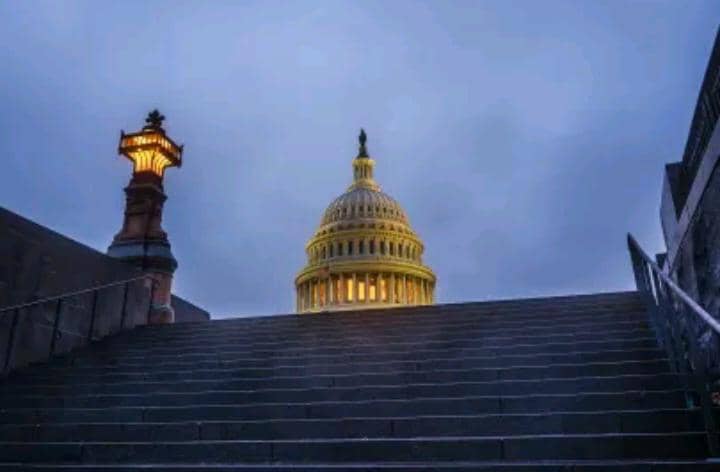The United States of America has officially lost its last perfect credit rating, marking a historic moment that could reshape global financial markets.
Diaspora Digital Media (DDM) reports that Moody’s Ratings downgraded U.S. debt from AAA to Aa1 on Friday, ending more than a century of top-tier creditworthiness.
This decision follows earlier downgrades by Fitch Ratings and Standard & Poor’s in 2023 and 2011, respectively.
Moody’s, which had maintained a perfect AAA rating for the United States since 1917, cited “a more than decade-long rise in debt and interest payments” as key factors behind the downgrade.
The downgrade means borrowing may become more expensive, potentially burdening Americans with higher interest rates on mortgages, credit cards, and loans.
Moody’s expressed concern that the government’s borrowing needs will continue to grow, further straining the U.S. economy.
In a statement, Moody’s warned that federal debt and interest payment ratios are now “significantly higher” than those of similarly rated countries.
The agency also flagged political instability and legislative dysfunction as risks that could undermine the U.S. fiscal outlook.
The Trump administration responded swiftly to the downgrade.
White House spokesperson Kush Desai accused the previous Biden-led administration of fiscal mismanagement and claimed the current government is working to correct the situation.
He referenced the administration’s push to pass a sweeping proposal dubbed “The One, Big, Beautiful Bill,” aimed at reducing waste and slashing government spending.
The U.S. Treasury Department has not yet issued an official response to the downgrade.
Moody’s initially warned of a potential downgrade in November 2024, after a series of political standoffs that nearly resulted in a debt default.
One such episode was the unprecedented ousting of House Speaker Kevin McCarthy, followed by Congress’ delayed selection of a replacement, exposing deep divisions in American governance.
Despite the downgrade, Moody’s emphasized that the U.S. maintains a “stable outlook” due to the strength of its institutions and independent monetary policy led by the Federal Reserve.
The agency cited America’s constitutional framework and separation of powers as sources of long-term policy stability, despite short-term disruptions.
Still, Moody’s hinted that further downgrades could occur if the country fails to reverse its growing fiscal imbalance.
To regain a perfect credit score, the United States would need to either raise government revenues or reduce expenditures.
The Trump administration has leaned heavily on cutting federal programs, including mass layoffs in federal agencies and scaling back USAID operations under the direction of Elon Musk’s Department of Government Efficiency.
However, analysts argue that these measures have yet to meaningfully reduce the government’s borrowing needs.
The nation is already approaching another potential debt ceiling crisis this summer, with a default looming if Congress fails to act.
At the same time, Trump is lobbying lawmakers to pass his massive “One Big Beautiful Bill Act,” a blend of deep tax cuts and reductions to social welfare programs.
The bill aims to make permanent the individual tax cuts from Trump’s 2017 Tax Cuts and Jobs Act.
It also introduces new temporary tax breaks meant to fulfill campaign promises, but at a steep cost.
According to the Committee for a Responsible Federal Budget, the bill could add $3.3 trillion to the national debt over the next ten years.
Despite proposed spending cuts, the tax revenue losses would far outweigh them, driving annual deficits even higher.
The committee estimates that annual deficits will balloon from $1.8 trillion in 2024 to $2.9 trillion by 2034.
Experts warn that repeated downgrades could further erode the perception of U.S. Treasuries as the world’s safest investment.
U.S. Treasuries, especially the 10-year bond, serve as a benchmark for global lending and influence interest rates for homebuyers, businesses, and foreign governments.
Rising yields on these securities signal higher perceived risk and translate into higher borrowing costs across the board.
Moody’s downgrade echoes concerns raised by other credit agencies in the past.
In 2011, S&P cited increased political brinkmanship and weakening policy predictability under the Obama administration.
In 2023, Fitch pointed to rising debt levels and an “erosion of governance” under President Biden’s leadership.
Although those administrations condemned the ratings as flawed and outdated, the reality of America’s worsening debt trajectory has only intensified.
A downgrade from all three major credit agencies now presents a troubling consensus about the future of America’s fiscal health.
Still, Moody’s refrained from labeling the U.S. as being in imminent fiscal danger.
Its stable outlook reflects confidence in America’s deep financial markets, innovative economy, and robust institutional frameworks—at least in the near term.
However, ongoing political turmoil, partisan gridlock, and repeated debt ceiling crises continue to rattle investor confidence.
Financial experts suggest that unless bipartisan cooperation leads to substantial fiscal reform, the U.S. may slide further down the ratings scale.
For ordinary Americans, the downgrade may soon be felt in rising mortgage rates, costlier loans, and tightening credit conditions.
The downgrade could also impact the broader economy by increasing borrowing costs for businesses, municipalities, and even state governments.
As global investors digest the implications of Moody’s decision, attention now shifts to Washington’s response.
Will lawmakers prioritize debt reduction?
Will tax reform or spending cuts be enough?
Or will political gridlock force the country into yet another fiscal crisis?
These are the questions now shaping the fate of the U.S. economy in the wake of a lost, century-long financial reputation.
This is a developing story. Stay with Diaspora Digital Media (DDM) for further updates.







